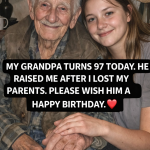In 1938, Hilde Back was sixteen years old and running out of time.
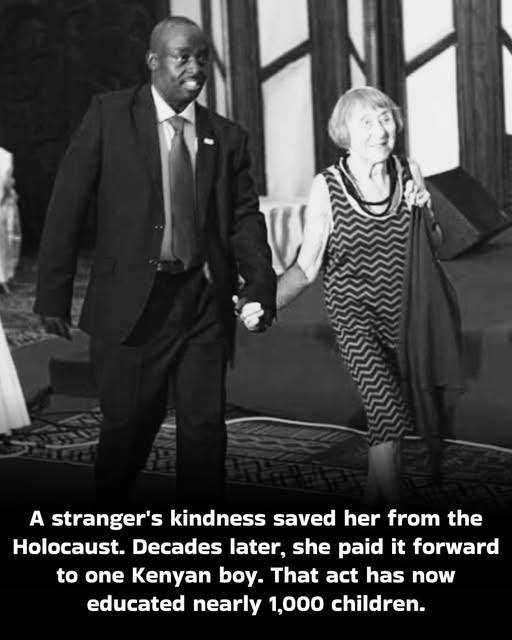
In 1938, Hilde Back was sixteen years old and running out of time.
She was a Jewish girl living in Germany as Adolf Hitler’s persecution of Jews intensified. The Nuremberg Laws had stripped Jews of citizenship and banned Jewish children from attending public schools. Hilde’s education had ended. Her future was closing in.
Then a stranger stepped forward—someone whose name Hilde would never know—and gave her family money to escape.
In 1940, Hilde fled to Sweden. She was accepted. Her parents were not. Swedish policy at the time refused entry to older refugees. Hilde watched her parents stay behind, knowing what that meant.
She would never see them again.
Her father died in a concentration camp. Her mother was transferred to another camp, and Hilde received one final letter before the silence became permanent.
At sixteen, Hilde arrived in Sweden alone, carrying the weight of survival and the memory of a stranger’s kindness that had saved her life.

She built a new life in her adopted country. She studied. She trained to become a kindergarten teacher. She taught drama at a college for preschool teachers. She lived modestly, quietly, for decades—a survivor who rarely spoke about what she had endured.
But she never forgot the stranger who had helped her family escape. She never forgot how one person’s small act of generosity had meant the difference between life and death.
In the mid-1970s, Hilde learned about a program that supported children in need across the world. She was living on a teacher’s modest salary. She didn’t have much. But she remembered being denied education as a Jewish girl in Germany. She remembered what it meant to have doors close because of who you were.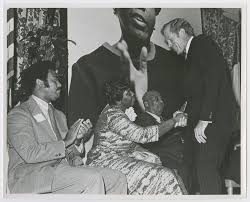

She decided to sponsor a child’s education—someone who would otherwise have no chance to attend school.
She signed up to send about $15 per month to keep a child in primary school in Kenya.
The child’s name was Chris Mburu.
Thousands of miles away in rural Kenya, Chris Mburu was brilliant. He earned excellent grades in the small village of Mitahato in Kenya’s central province, not far from Mount Kenya. But brilliance wasn’t enough.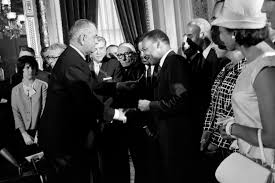

His family was poor. In his region, most families survived on less than $2 a day picking coffee. Secondary school cost about $10 per week—an impossible sum for most families. Without financial help, Chris’s academic promise would end after primary school, and he would spend his life in the coffee fields.
Then the sponsorship came through. A woman in Sweden—someone Chris had never met, whose face he had never seen—began sending money every month to pay his school fees.
Chris excelled. He completed secondary school at the top of his class. He earned admission to the University of Nairobi. Then, incredibly, he was accepted to Harvard Law School.
From a barefoot child in rural Kenya to a Harvard graduate—all because a Holocaust survivor in Sweden had sent $15 a month.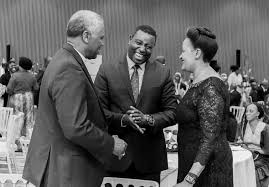

Chris became a human rights lawyer. He joined the United Nations, working in the anti-discrimination section, dedicating his life to fighting genocide and crimes against humanity.
But he never forgot his “angel”—the mysterious woman whose generosity had changed everything.
In 2001, Chris decided to replicate that kindness. He created a scholarship foundation to help other talented Kenyan children from poor families continue their education. He named it The Hilde Back Education Fund, honoring the benefactor he had never met.
With the help of the Swedish Ambassador in Kenya, Chris began searching for Hilde Back. He wanted to find her. He wanted to thank her. He wanted her to know what her small act had become.
He found her.
In 2003, Hilde traveled to Kenya for the first time to attend the inauguration ceremony of the fund that bore her name. At 81 years old, she met the boy she had sponsored—now a distinguished human rights lawyer—for the very first time.
Neither had known the other’s full story.
Chris learned that Hilde wasn’t a wealthy Swedish woman with money to spare. She was a Holocaust survivor who had fled Germany as a teenager, who had lost both parents in concentration camps, who had lived modestly her entire life. Her monthly contributions had been genuinely sacrificial—a meaningful portion of a kindergarten teacher’s salary.
Hilde learned that Chris wasn’t just grateful—he was paying it forward, multiplying her single act of kindness into a foundation that would help hundreds of children.
When American filmmaker Jennifer Arnold heard Chris’s story, she knew it needed to be told. She flew to Sweden to interview Hilde for a documentary. Arnold discovered something remarkable: Hilde had never really talked about her Holocaust experience before. She had lived with that trauma quietly for decades.
But on camera, for the film, Hilde opened up. She told her story—not just for herself, but so the world could understand the connection between the kindness that saved her and the kindness she extended to Chris.
“If you do something good, it can spread in circles, like rings on the water,” Hilde said.
The documentary, “A Small Act,” premiered at the Sundance Film Festival in 2010 and later aired on HBO. UN Secretary-General Ban Ki-moon introduced the film at the New York screening, praising it “for highlighting the importance of giving all children an education in the fight against ignorance and bigotry.”
The film changed everything.
Donations flooded in. One anonymous donor in London gave $250,000. What had started as a small fund helping 10 children began expanding rapidly. Within a year of the film’s release, the fund was sponsoring 60 new children. The next year, 160.
By January 2024, the Hilde Back Education Fund had helped 973 children in Kenya continue their studies through secondary school.
Nearly a thousand lives transformed. Nearly a thousand children who would have ended their education after primary school, now graduating from secondary school with the possibility of university, careers, dreams they never imagined possible.
In 2012, Hilde returned to Kenya to celebrate her 90th birthday. Chris brought her to meet some of the children whose lives had been changed by the foundation bearing her name. She saw firsthand how her small monthly contributions to one boy in the 1970s had rippled outward into hundreds of transformed lives.
The children treated her like a grandmother—their grandmother.
“I think there’s so much need in the world that we need to help,” Hilde told interviewers. “It just felt normal to donate some money to a child. What you send is just a drop in the ocean. I don’t have much, and sometimes you wonder whether it helps.”
She genuinely didn’t understand that she was a hero. She saw herself as an ordinary person who had done a small thing.
But to Chris Mburu, she was “an angel who walked into my life and fixed it.”
And to nearly a thousand Kenyan children, she became the reason their dreams became possible.
The parallels in their lives were profound. Hilde had survived the Holocaust. Chris worked fighting genocide. Hilde had been denied education as a Jewish child in Nazi Germany. Chris dedicated his foundation to ensuring no child’s education ended because of poverty.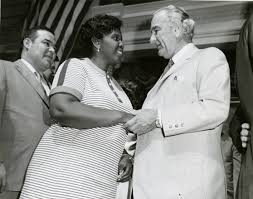

When ethnic violence erupted in Kenya following the 2008 presidential election, Hilde watched the news from Sweden and called Chris, worried about the man she treated like the son she never had. Chris, who had to return to Kenya during the crisis, saw firsthand how ignorance and lack of education fueled ethnic hatred. His foundation’s mission became even more urgent.
“I would like to see these kids to be educated,” Chris explained, “because once you have a society that is very, very ignorant, it becomes the breeding ground for violence, for misinformation, for intolerance.”
Education, he understood, wasn’t just about individual opportunity. It was about preventing the kind of hatred that had killed Hilde’s parents and destroyed millions of lives.
Hilde Back lived to see her 98th birthday. She died on January 13, 2021, in Västerås, Sweden, surrounded by a life she had built from the ashes of trauma—a life defined not by what she had lost, but by what she had given…





